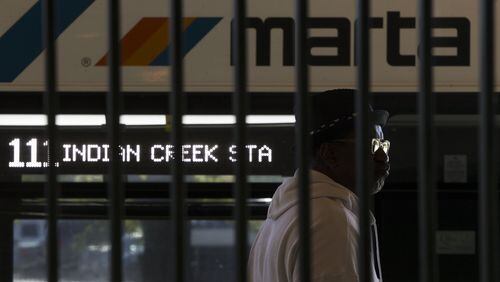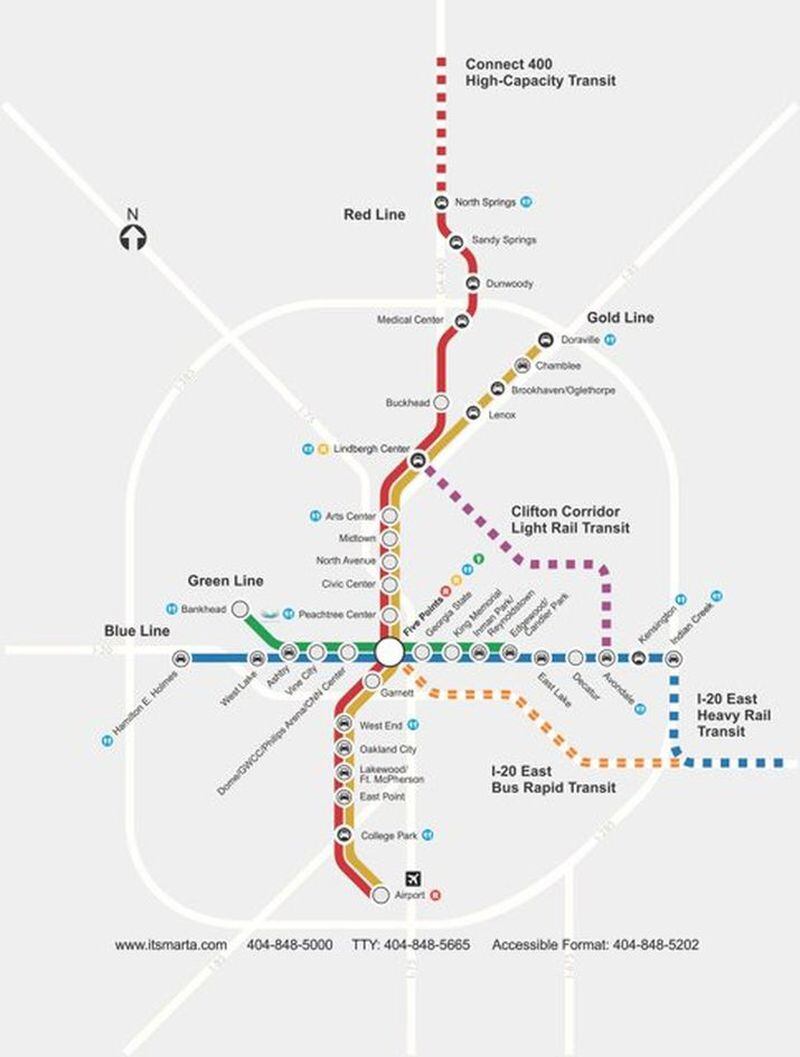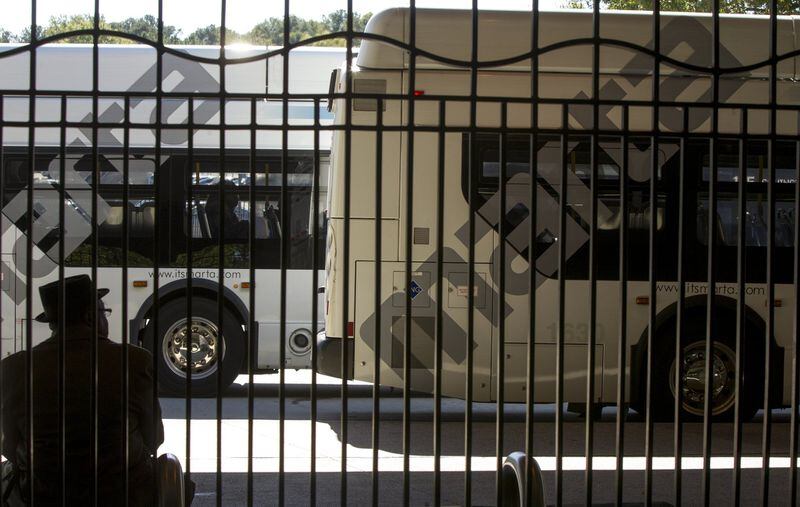For decades, commuters in suburban DeKalb County have been pleading for MARTA to expand eastward along I-20, but that train won't be coming down the tracks anytime soon.
Even a recent long-shot pitch to lure Amazon’s second headquarters to the Stonecrest area won’t make rail happen.
It now appears that if DeKalb taxpayers agree to fund more public transit, they'd get commuter bus lines long before heavy rail would arrive.
MARTA officials say bus rapid transit would likely come first because it can be built more quickly and cheaply than traditional train service, which requires larger stations and more expensive infrastructure.
The dream of rail lines connecting hundreds of thousands of residents to the intown Atlanta business district will have to wait.
"Perhaps start off with a bus rapid transit option that's not as expensive construction-wise. It doesn't take as long and it's less costly as you build up support to get federal matching money to ultimately build a rail solution in that corridor," said MARTA CEO Keith Parker during an August interview with The Atlanta Journal-Constitution's editorial board.
While MARTA’s long-term plan for a combination of bus and rail service from Five Points to Stonecrest Mall hasn’t changed, it’s becoming increasingly clear that rail will probably take a back seat.
Bus rapid transit is similar to rail, but on tires instead. Passengers would board buses at stations rather than bus stops, and they’d travel on dedicated lanes or toll lanes, free from the clutter of metro Atlanta’s stifling traffic.
Teresa Hardy, president of the DeKalb NAACP, said she’d oppose bus rapid transit if it replaces heavy rail. But she said bus service would be a welcome supplement to rail lines.
“We prefer heavy rail, and that’s what we’re going to be fighting for,” Hardy said. “That’s what the community has requested, and that’s what they’ve been told they’re going to get.”
A lack of public transit could put a damper on the city of Stonecrest’s bid to recruit Amazon’s second headquarters, a proposal highlighted by the idea of carving out land to create a new city of Amazon for the company.
Stonecrest Mayor Jason Lary highlighted MARTA's plans to expand to his city when making his pitch to Amazon after the online giant said it needed access to mass transit. But he's not discouraged if trains don't arrive.
“I’m not banging the ground on heavy rail because if Amazon says, ‘We need for you all to complete this project in a three or four-year time span,’ then bus rapid transit is fine with me,” Lary said. “Bus rapid transit cuts the time in half” to build out a MARTA expansion.
Under a proposal approved by MARTA's board in 2012, the transit agency could someday extend from its existing terminus at Indian Creek to five more stops, reaching Stonecrest Mall. In addition, bus rapid transit would connect Five Points to a new Wesley Chapel multimodal bus and rail station.
In all, the combined 25 miles of transit lines would cost more than $2 billion. Riders could travel from Stonecrest to Five Points in 40 minutes, saving nearly 35 minutes off their commute, according to MARTA documents.
The transportation expansion won’t happen unless governments find a way to pay for it, and DeKalb officials have previously proposed funding through an additional half-cent sales tax. MARTA funding in DeKalb could be considered during next year’s session of the Georgia General Assembly.
“Set some realistic expectations,” said Rep. Tom Taylor, R-Dunwoody, the chairman of the House Metropolitan Atlanta Rapid Transit Overview Committee (MARTOC). “Heavy rail — not just in Atlanta but nationwide — is very expensive and time intensive. Bus rapid transit is next wave.”
One major obstacle to heavy rail is a lack of federal funding, he said. Federal grants for heavy rail, which costs about $150 million per mile, are awarded to areas with higher density and business development than exists along the I-20 corridor. The area has many residents but few major businesses.
About 36 percent of commuters from the I-20 East Corridor commute to Fulton County — the largest daily destination for workers in the area, according to a 2017 MARTA report.
“That’s one of the historic problems of federal funding. They require density first, when really density follows rail,” said Lee Biola, president of the advocacy group Citizens for Progressive Transit. “Bus rapid transit doesn’t create walkable town centers the way that heavy rail stations have the potential to do. A developer isn’t going to make a decision based on a bus stop that can move at the drop of a hat.”
The potential for MARTA eastward growth is just one of several expansion proposals, along with others in the city of Atlanta, Clayton County, north Fulton County and the Clifton Corridor light-rail plan from Buckhead to Emory University to Avondale. The plans that get funding — so far, only those in Atlanta and Clayton — will be built first, Biola said.
DeKalb commissioners requested a public meeting with MARTA about future transit plans as part of an agreement with the city of Atlanta over its planned annexation of Emory, which gives the university campus access to the city's transportation funding.
“I’m just hopeful that in my lifetime, I will see heavy rail from Indian Creek because this is something we’ve been pushing for for at least 20 years,” said Commissioner Mereda Davis Johnson, who represents southeast DeKalb.









